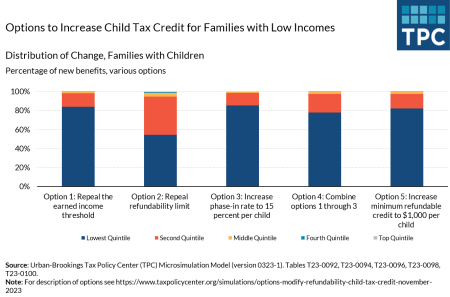Tongues were wagging this morning after a Zillow update reportedly indicated that former President Donald J. Trump sold Mar-a-Lago for $422 million. As of this writing, the listing on Zillow’s website shows that a 5,061-square-foot residence at 1100 S. Ocean Boulevard in Palm Beach, Florida, was sold on Friday, August 4, 2023. According to the website, it previously changed hands in 1995 for $12,000,000.
It’s not clear if the transfer is legitimate or a hoax—though the latter is quite likely. Hours after the report, Eric Trump released a statement saying, “Mar-a-Lago has not been sold nor will it ever be. This rumor is asinine.”
These kinds of real estate transfers don’t usually make news—and I don’t typically report on them. But what is noteworthy from a tax perspective are the whispers about the cost. “Why,” folks were wondering, “if it went to a family member (as was reported) didn’t he sell it for $1?”
The infamous $1 transfer of the family home is one of those things that can often plague tax and estate lawyers. While there can be legitimate tax planning reasons for making a transfer below fair market value, there are often just as many reasons not to do such a transfer. Here are some key issues to consider when making a transfer of property to family members.
Basis
Basis is, at its most simple, the cost that you pay for assets. The actual cost is sometimes called your cost basis.
When it comes to real property, your basis is your cost plus any capital improvements. If you make a capital improvement—a major change that adds permanent value—to your house, that increases your basis. The result is sometimes called the adjusted basis.
To figure out a gain or a loss for federal income tax purposes, you take the price of the asset at disposition—in most cases, the sale price—and subtract the adjusted basis. That difference is your realized gain or loss.
When a person dies, there’s a “step-up” in basis for assets held at death. That means that basis is increased to the fair market value of the asset as of the date of death. This typically happens in proportion to the percentage of ownership—for example, if the deceased owned 50% of a property, that 50% of the property is stepped up in value, while the remaining 50% retains its previous basis.
In contrast, a property that is gifted has “carry-over” basis. That means that the original basis of the asset carries over from one owner to the next.
So, let’s consider the infamous $1 transfer. Let’s assume you bought a house for $200,000 and made no capital improvements. Let’s assume that the house is now worth $500,000.
If you passed away today, your heirs would inherit the home with a basis of $500,000—that means that a sale for $500,000 would result in no capital gains ($500,000 sale price less $500,000 stepped-up basis=$0).
If you made a gift of the property to your heirs before your death, they would carry over your basis of $200,000. If they then sold it for $500,000, the home would be subject to capital gains ($500,000 sale price less $200,000 basis=$300,000 capital gain).
Keep in mind that to qualify for the capital gains exclusion, the new owners must meet the 2/5 rule, meaning that the home must have been owned for at least 24 months (two years) during the last five years leading up to the date of sale (date of the closing) and the taxpayers must have lived in the home as their primary residence for at least 24 of the months during the five years leading up to the date of sale.
If you had sold the home for fair market value—even if it were to your heirs—the new owners would have a basis equal to that sale price. In that case, if the heirs purchased the home for $500,000 and subsequently sold it for $500,000, there would be no gain.
But a sale for $1? That’s not a sale for fair market value. It’s a gift. In most cases, that means that carry-over basis would apply, and your heirs would miss out on any step-up in basis when you subsequently pass away. In our example, if the house is “sold” during your lifetime for $1, even if the house was worth $500,000 when the gift is made, the basis in the hands of the new owner is $200,000 (the original basis).
Probate Avoidance
So why make a $1 transfer (or any amount less than fair market value) in the first place? Taxpayers often believe that they are saving money by avoiding probate. Here’s why that doesn’t always make sense.
Probate is the formal process of a court (or Register of Wills) granting authority of a personal representative—typically called your Executor—to carry out the terms of your will. Over the years, probate has been painted as expensive and complicated. That’s not usually the case. In most states, like my home state of Pennsylvania, probate is relatively inexpensive and simple. Probate fees for an estate that holds real estate worth $500,000 will be in the range of about $500—likely far less than the capital gains tax due from a transfer of the home for less than fair market value.
And here’s the most important bit—and what your TikTok reel isn’t telling you—to avoid probate, you need to effectively transfer all assets owned by the decedent out of their name before death. That includes bank accounts, cars, business interests, and the like. If your goal is to avoid probate, making a $1 transfer of the family home during lifetime usually won’t do the trick. There’s a lot more work to do.
Inheritance & Estate Taxes
Another argument for the $1 transfer during lifetime is the avoidance of inheritance and estate taxes. To be clear, with effective planning, you can lower your potential inheritance and estate tax burden.
In 2023, federal estate tax kicks in when your assets hit $12.92 million (or $25.84 million for married couples). After you pass those amounts, your federal estate tax rate depends on the overage—rates start at 18% and climb to 40%. Since long-term capital gains rates max out at 20%, it can be a tax-saver to transfer assets out of your estate during your lifetime. Most taxpayers, however, aren’t subject to federal estate tax.
Those of us who aren’t multimillionaires may still have to pay state inheritance and estate taxes. According to the Tax Foundation, as of 2022, 12 states and the District of Columbia imposed state estate taxes, while six states had state inheritance taxes (Maryland has both). The existence of those taxes doesn’t mean that a less than fair market transfer will necessarily result in a lower tax bill: in Pennsylvania, for example, the inheritance tax is 4.5% on assets passing to children—less than the average capital gains tax rate. In other states, taxes may not even apply until you hit certain thresholds—Connecticut matches the feds so estate tax is not due unless decedents have a taxable estate of more than $12.92 million.
And in some cases, if you make a gift within a window of time before death, the gift may be pulled back into the estate and subject to tax (that’s true for federal purposes, too).
Gift Taxes
As noted earlier, the transfer of property for less than fair market value is, for federal purposes, a gift. For most taxpayers, those transfers don’t typically matter—that’s because even so-called taxable gifts aren’t generally subject to federal gift tax immediately. They chip away at your federal estate tax exemption. And remember, the federal estate tax doesn’t even apply until your assets hit $12.92 million (or $25.84 million for married couples), so it will take a lot of chipping to get there.
But transferring a multi-million dollar property for less than fair market value—or a smaller transfer as part of a series of other gifts—could subject some taxpayers to gift tax. Any transfer for less than fair market value should be considered in conjunction with long-term tax planning.
Tax Breaks and Other Considerations
While most taxpayers aren’t impacted by federal estate and gift taxes, they are impacted by property taxes. That’s another area where the $1 transfer of real property can have an unintended tax consequence. For example, some states and townships offer property tax freezes or rebates for seniors who own their own homes—a real estate transfer (even a $1 sale) will, in most cases, disqualify the senior from those breaks even if they remain in the home.
If the previous owner chooses to remain in the home after the transfer, as is often the case, that can raise other issues. For example, the seller who stays in the house (typically mom or dad) may need to pay rent to the new owner, even if it’s their own child—failure to do so could mean that the new owner is making a gift each month of the fair market value of the rent. Failing to do so could, outside of tax consequences, complicate other benefits for seniors.
There could also be issues related to paying off or securing a mortgage for the property—finance companies aren’t always elated with less than fair market value transfers. And removing an asset from mom or dad’s portfolio without adequate consideration could jeopardize their ability to get credit in case of an emergency.
Seek Help
There are legitimate reasons why homeowners may want to transfer a property for fair market value—or less than fair market value—to a related party. But don’t rush into a transaction without understanding the big picture. It’s best to consult with a tax professional to discuss the pros and cons before signing on the dotted line.
Read the full article here








